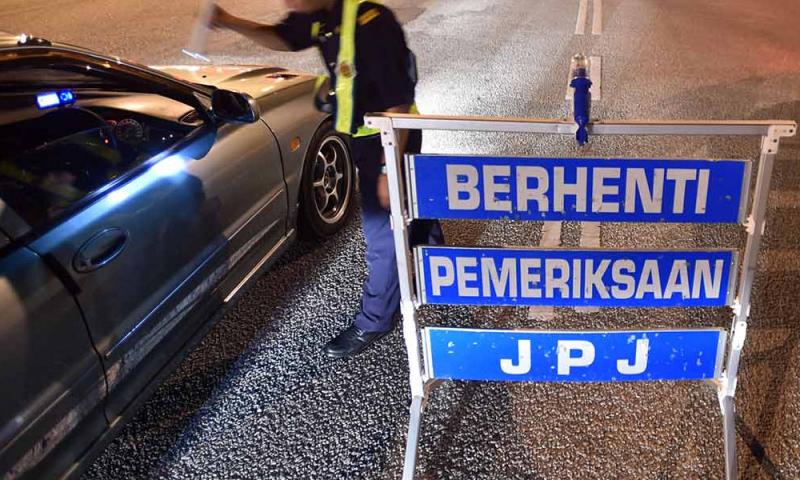Perlis RTD denies soliciting bribes from Thai 'kereta sapu', says no compromise
There will be no compromise on Thai vehicles that enter and leave the country but fail to heed Malaysian road transport laws and regulations, stressed Perlis Road Transport Department (RTD) director Fatimah Mohamed Ali Piah.
She said Perlis RTD carried out monitoring and patrols daily to catch foreign vehicles breaking Malaysian road laws and regulations like those provided for under the Motor Vehicles (International Circulation) Rules 1967 and the Road Transport Act 1967.
“We pay attention to the entry points from Thailand in Perlis namely at Wang Kelian and Padang Besar to ensure everyone follows the stipulated laws and regulations.
"There are many who do not see what RTD is doing because we take the approach of conducting patrols to catch offenders and less static operations because this method (patrols) is more effective to prevent them from learning about the movements of our enforcement teams,” she told Bernama when asked about "kereta sapu” (pirate taxis) from southern Thailand operating in Padang Besar.
These "pirates” not only ferry passengers around Padang Besar but also utilise vans to transport Thai workers of Thai restaurants outside Perlis like in Penang, Kedah and Negeri Sembilan to the Padang Besar Customs, Immigration and Quarantine Complex for them to renew their social visit passes and back.
“Drivers of foreign vehicles are not allowed to abuse the International Circulation Permit (ICP) to ferry passengers or utilise vans for passenger transport or as commercial vehicles,” she stressed.
She said, throughout last year (2019), Perlis RTD had taken action against 586 foreign vehicles from the neighbour for breaking the country's laws.
The highest number involved abusing the ICP at 482 cases and that enforcement against this offence was further stepped up this year, she said.
“As of January 22, 51 summonses were issued to vehicles from Thailand and 41 of them were for abusing the ICP,” she added.
On other offences involving foreign vehicles in 2019, Fatimah said among others they included 27 cases of not having or expired competent driving licence (CDL), no insurance (14 cases), licence plate offences (14) and technical offences (three).
She said that among the conditions for applying for the ICP were that the vehicle must be registered in the country of origin with the licence plate in Roman letters and numbers (red licence plates from Thailand are not allowed to come in), must have valid registration documents with translation into Bahasa Malaysia (BM) or English and has Malaysian Third Party Insurance.
Apart from these, applications for the ICP must also heed provisions under the Motor Vehicles (Construction and Use) Rules 1959, the front windshield must allow no less than 70 per cent light entry while the side and rear windshields not less than 50 per cent, have a driver's licence with translation into BM or English, motorcyclists must wear safety helmets and it is compulsory for car or van drivers to put on seat belts.
According to Fatimah, the ICP issued to foreign vehicles by Malaysia are valid only for 30 days but can be extended up to 90 days subject to RTD approval.
She denied claims by Thai "pirate van” operators that there were RTD officers who solicited bribes from the drivers to let them off even though they violated ICP regulations.
The money asked for, she said, was for payment of summonses with all records concerning the ICP offences and fines filed.
“I will not hesitate to take action against any RTD personnel found taking bribes. Any member of the public who has such information can lodge reports directly with RTD… however, so far there has been no case of any RTD officer accepting bribes as alleged,” she added.
- Bernama
RM12.50 / month
- Unlimited access to award-winning journalism
- Comment and share your opinions on all our articles
- Gift interesting stories to your friends
- Tax deductable

 Bernama
Bernama